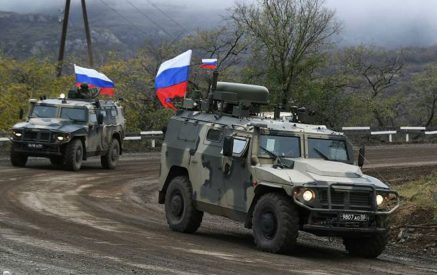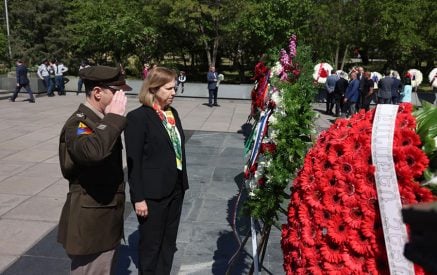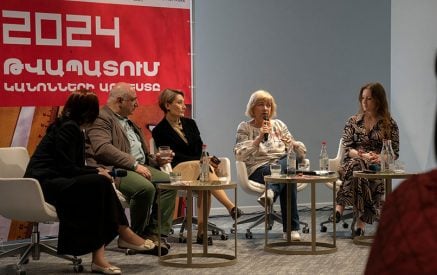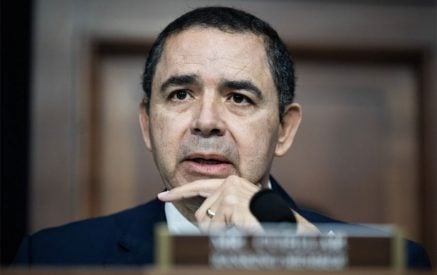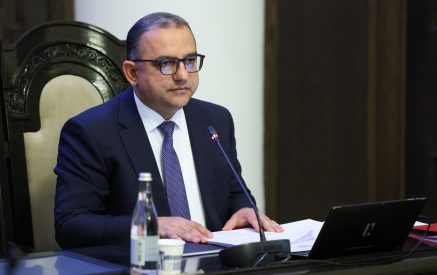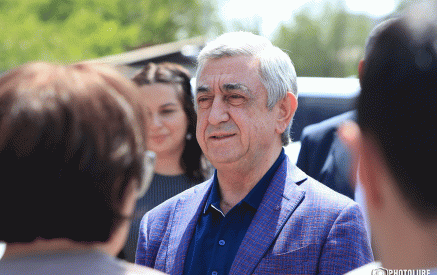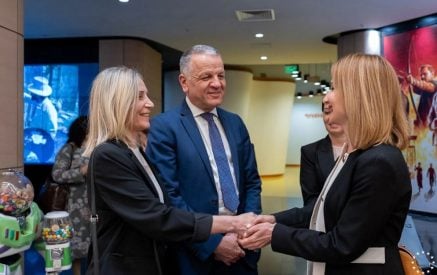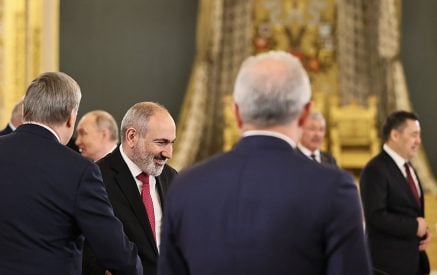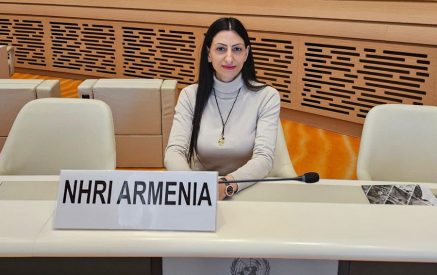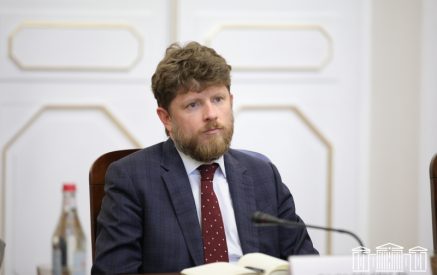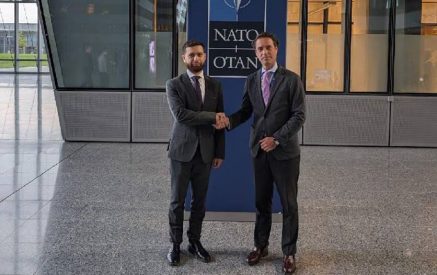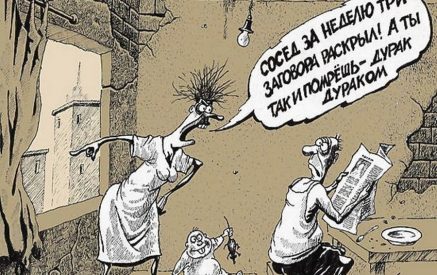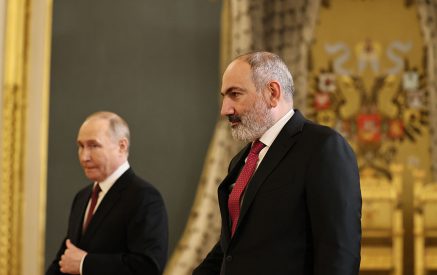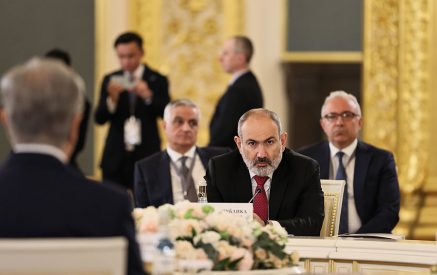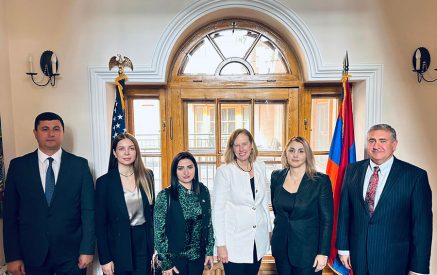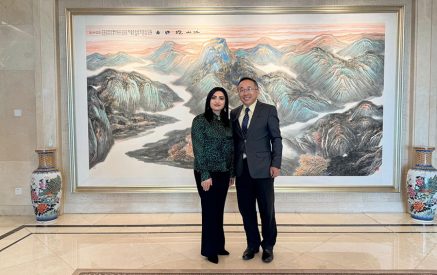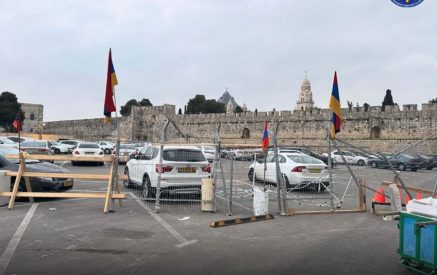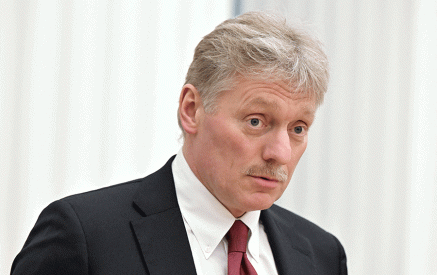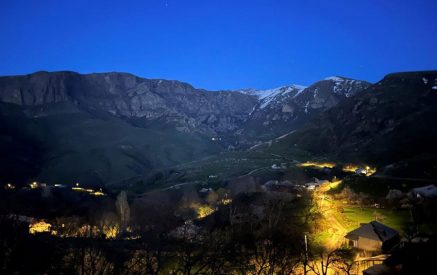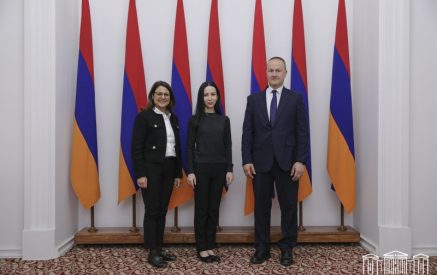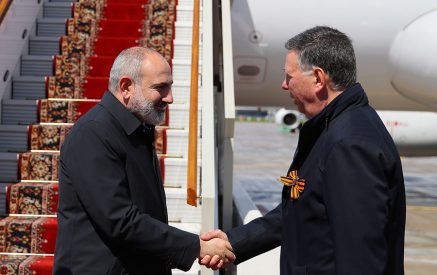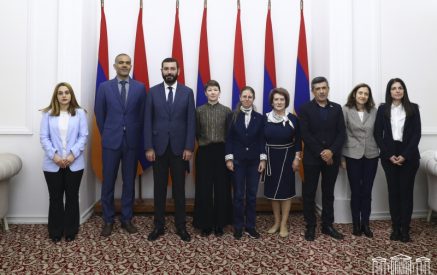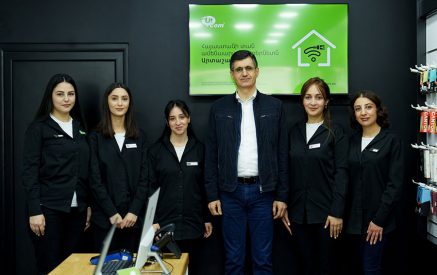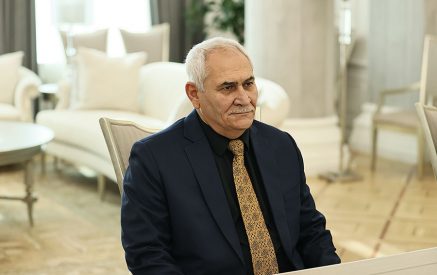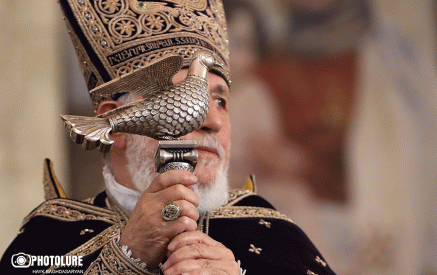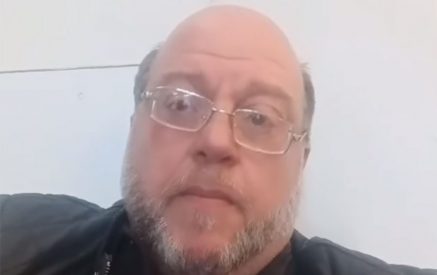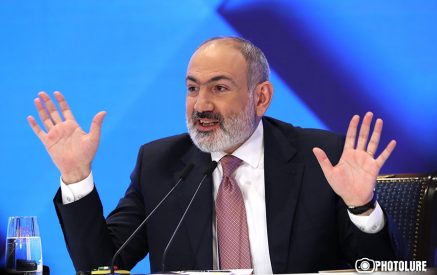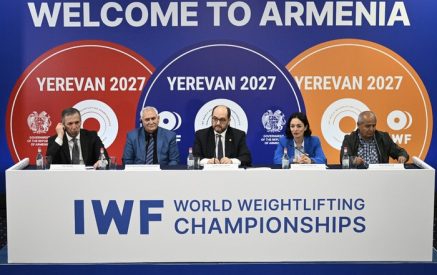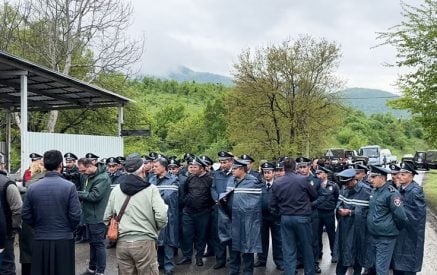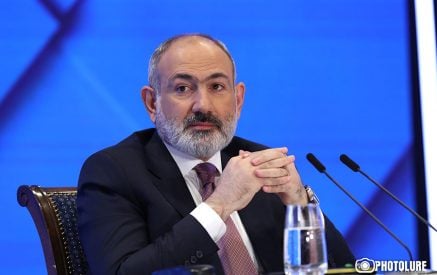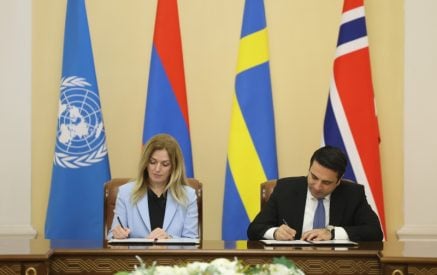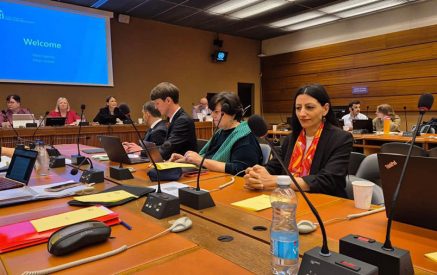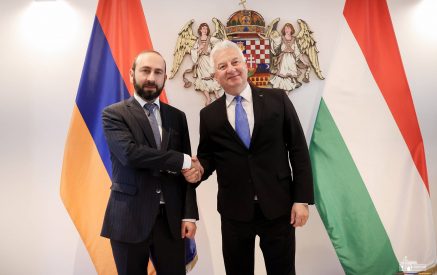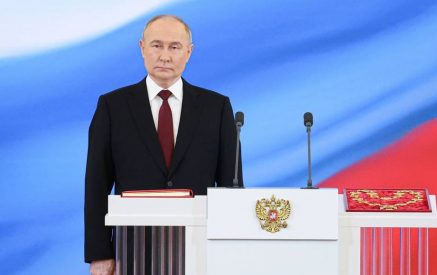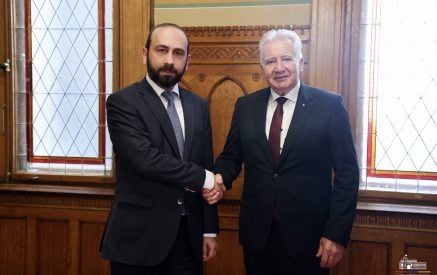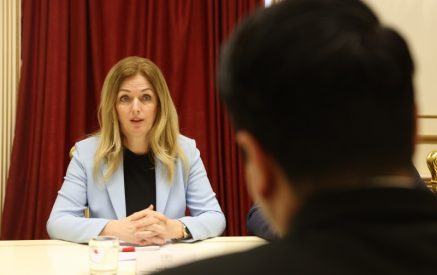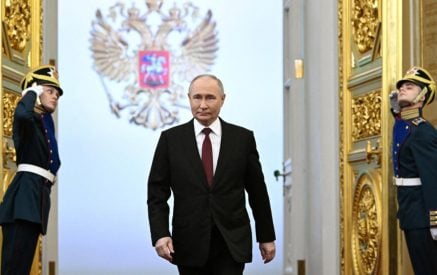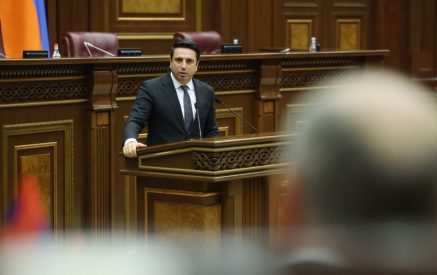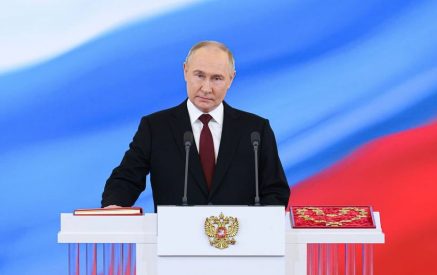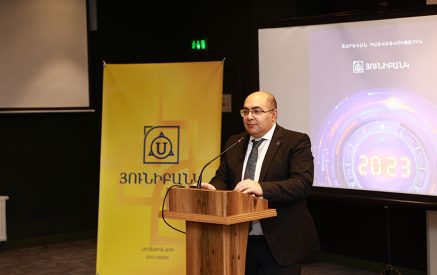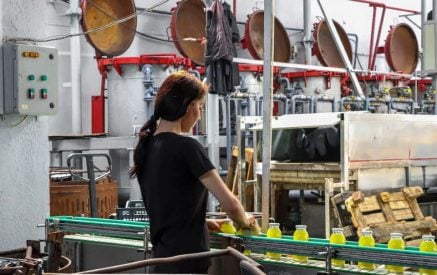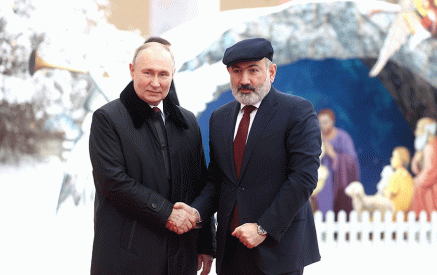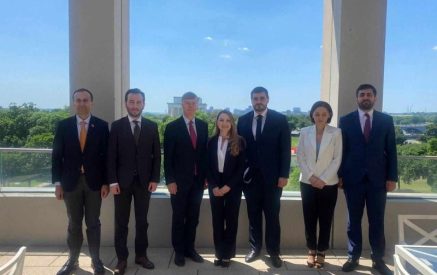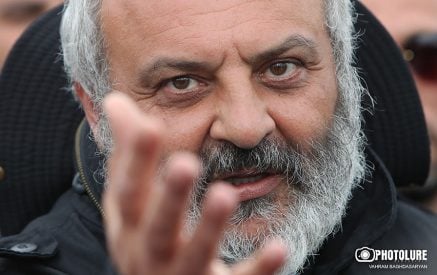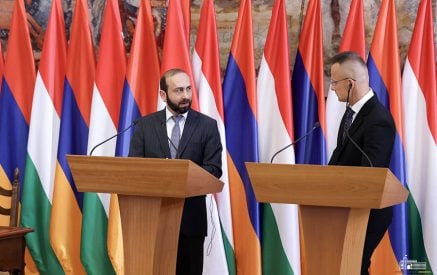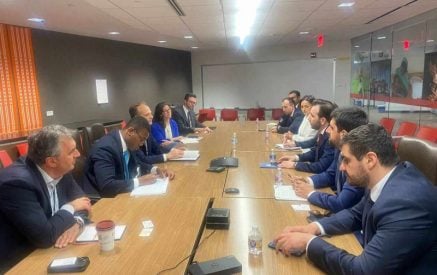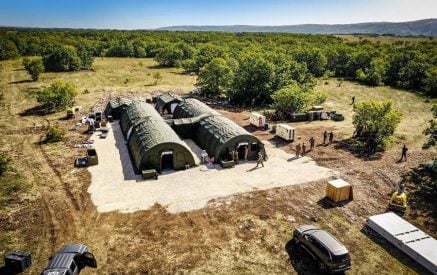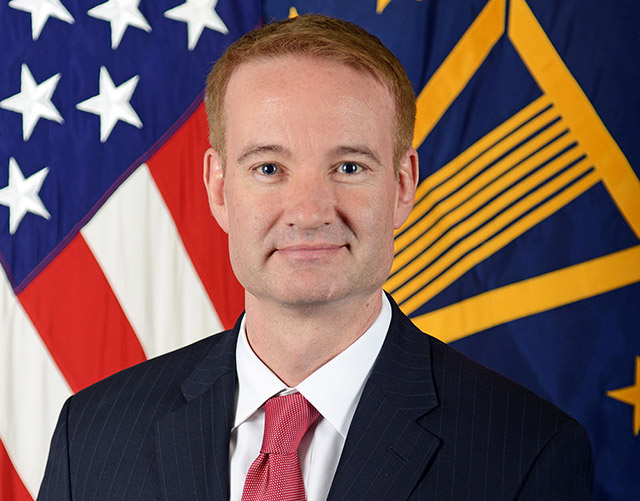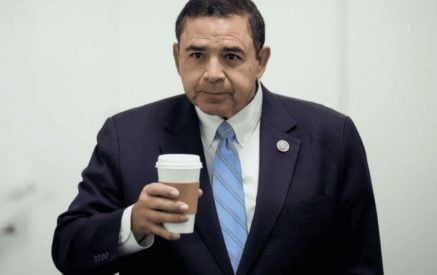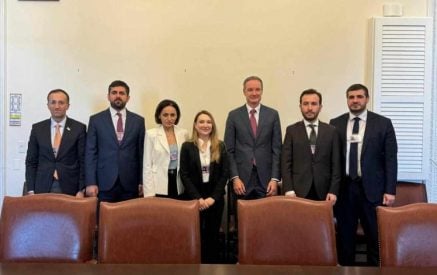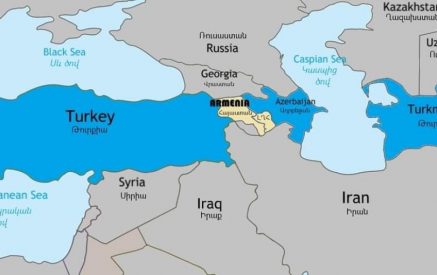The United States is very keenly involved in the diplomatic process of normalizing relations between Armenia and Azerbaijan and establishing peace in the region, and we will continue to look for ways to bring the ministers and the leaders of the two countries together.
Ambassador Michael Carpenter, US Permanent Representative to the Organization for Security and Cooperation in Europe (OSCE), stated this when responding to the question of a Turkish reporter as to whether Washington has plans to organize a meeting between the foreign ministers of Armenia and Azerbaijan despite Baku’s refusal to participate in such talks with the participation of the French president.
Special Online Briefing with Ambassador Michael Carpenter, Permanent Representative of the United States of America to the Organization for Security and Cooperation in Europe (OSCE)
November 29, 2022. U.S. DEPARTMENT OF STATE
Read also
MODERATOR: Thank you, Ambassador. We’ll go to another live question. Alex Raufoglu, please, you have the floor.
QUESTION: Yes, John. Thank you so much. And Ambassador, thank you so much for your time. I have a question on the South Caucasus, but let me before that follow up on two previous questions quickly.
When we talk to Ukrainians, we can also hear them saying that calling everything by its name is a crucial step in bringing justice and placing responsibility, accountability, for Russian war crimes. Now, we just heard a British parliament speaker saying that – this afternoon that Holocaust is happening again. Are you in a position to reflect the U.S.’s view on this? Is Holocaust happening again in the OSCE geography?
Secondly, Russia is derailing peacekeeping missions, disrupting the budget process, threatening an organization that is vital for Europe’s security, blocking decisions on the 2024 OSCE chairmanship that is crucial for the bloc’s normal functioning. Do you think if remained unpunished, without being called out, Putin’s Russia is sort of creating an atmosphere of impunity within the agency which might actually harm the OSCE?
And my last question is on Armenia-Azerbaijan. Any plans to bring the ministers together during the summit, as you know, after Azerbaijan said no to peace talks, if President Macron is (inaudible)? Thank you so much.
AMBASSADOR CARPENTER: Thank you, Alex. That’s quite a few questions. Let me see if I can go through these one by one.
So in terms of calling things by their name, I believe we do that pretty effectively every week at the permanent council. And if you go back and look at my statements, you will see that I do not spare any words when describing Russian atrocities inside Ukraine. We do believe it’s very important to speak truth, to bear witness to what is happening now, which is something that hasn’t happened really on this scale since World War II. I mean, we have seen of course there was the tragedies that unfolded in the former Yugoslavia in the ’90s and there have been – there was genocide in Rwanda and there have been other atrocities, mass atrocities, committed in various parts of the world. But to see a military conflict this big involving this many troops with a nuclear power involved is rather unprecedented.
Yes, we do believe it’s important to call things by their name. I think President Biden spoke to the question of genocide when he was asked about it, and I completely agree with the President on this and have said so numerous times in public and happy to say it again today.
When it comes to your second question on Russia’s blocking of the OSCE unified budget, its blocking a decision on a chair for the organization in 2024, and what do we do if we don’t punish or call them out – well, first of all, we are calling them out. We call them out all the time on these issues and state very clearly that they are obstructionist; they are often the sole participating state that is preventing some of these decisions from being taken. That’s why it’s so important for all of you in the media to understand that we have really made a conceptual leap in taking so many decisions in the last nine months not with Russia’s approval but, in fact, without unanimity. I would say with consensus because most of the states agree, but without unanimity.
And so we’ve launched this new mission in Ukraine, the Support Program for Ukraine. We have held the human rights conference in Warsaw in September despite Russia’s staunch opposition. And we’ll continue to find ways to fund the programs and projects of the OSCE even if Russia blocks the budget, because there are extrabudgetary ways of funding project activities that we can use and that we will use. So if Russia puts up roadblocks, we’re going to go right around them and find ways to continue supporting Ukraine and the other states in the OSCE where we have field missions.
On your third question on the diplomacy between Armenia and Azerbaijan in pursuing an agreement that would bring peace to the region and normalize relations, as you know, the United States is very keenly involved in this process – I should say very deeply involved in this process, very keenly interested in securing a peace agreement, and we will continue to look for ways to bring the ministers and the leaders together. It’s no secret that we’re working very closely with our EU partners on this and looking at also deploying the toolkit of the OSCE, which did deploy a needs assessment team to the Armenian side of the Armenian-Azerbaijani border at Armenia’s request, but also supporting very much the EU efforts on the border.
Our objective is simple: We would like to see the border delimited as soon as possible; we would like to see a peace agreement agreed between the two sides as soon as possible so that peace and stability comes back to the region, the human rights and the security of all individuals living in this region are respected, and we can turn a new page in the history of the South Caucasus. Obviously it’s going to take some time to get to that end state, but we’re committed to doing everything we can to support that outcome.

